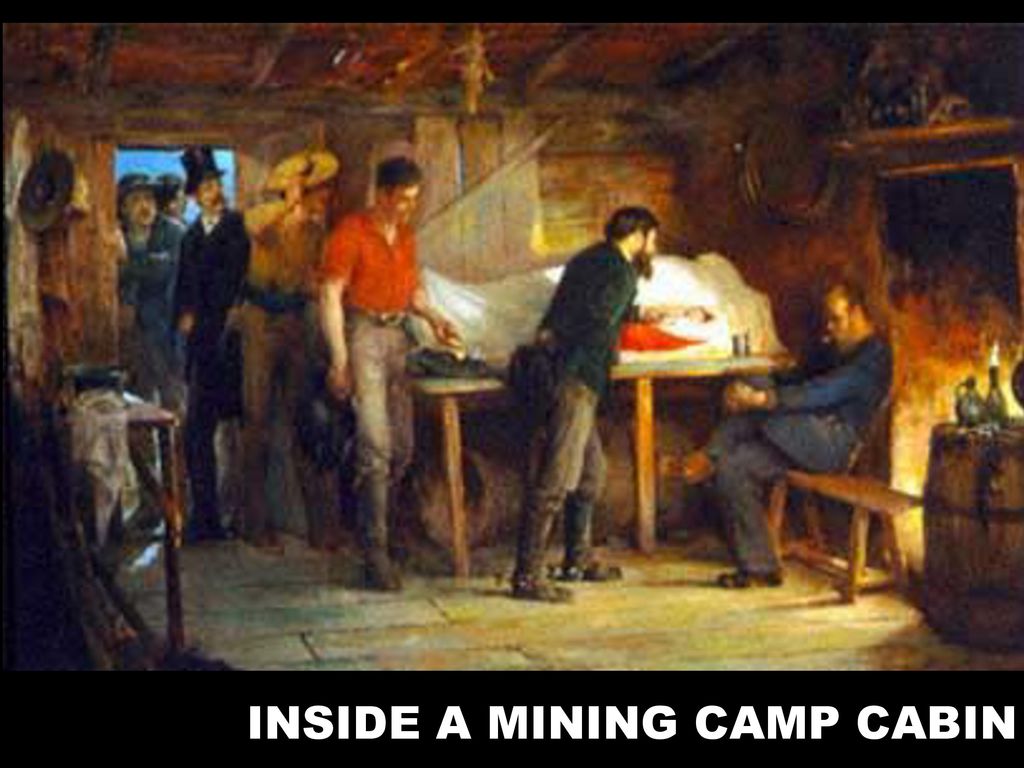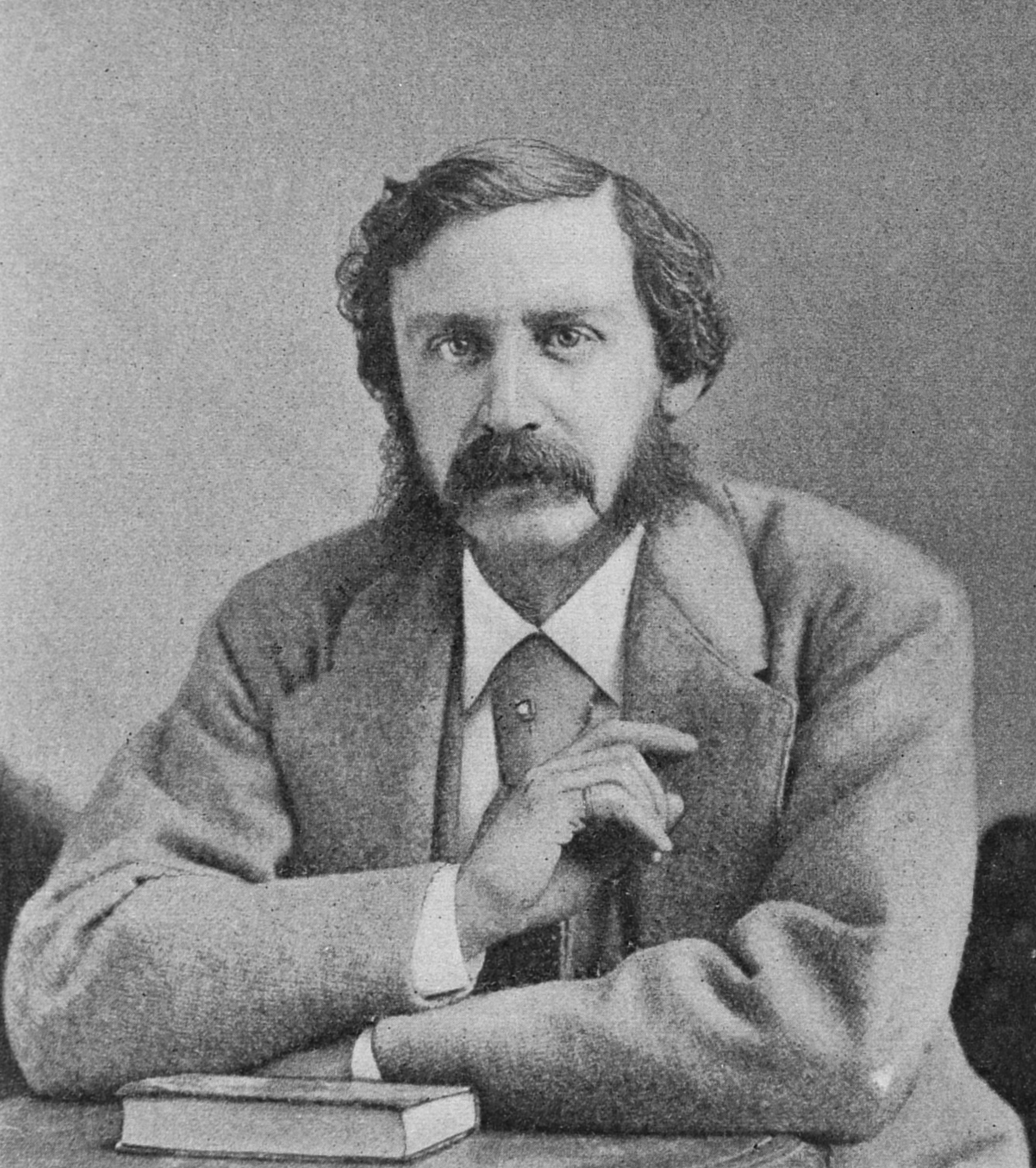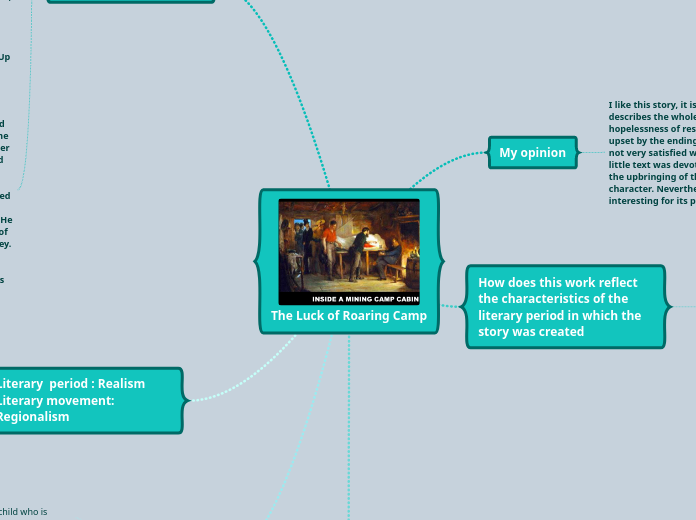
The Luck of Roaring Camp
My opinion
I like this story, it is short but fully describes the whole theme of hopelessness of residents. But I was upset by the ending, and besides, I'm not very satisfied with the fact that little text was devoted specifically to the upbringing of the child and his character. Nevertheless, the story is interesting for its plot.
How does this work reflect the characteristics of the literary period in which the story was created
The plot of this story differs from what I have read before. The setting emphasis history and landscape of the Roaring Camp. Characters are stereotypical. During the whole plot very little does happen, I noticed that there are more descriptions and in fact not so important information, the most important events happen quickly, especially the ending. The residents suffer from failure, and get hope only with the birth of a child.
biography of the author

Bret Harte (born Francis Brett Hart; August 25, 1836 – May 5, 1902) was an American short story writer and poet, best remembered for short fiction featuring miners, gamblers, and other romantic figures of the California Gold Rush. In a career spanning more than four decades, he also wrote poetry, plays, lectures, book reviews, editorials and magazine sketches. Harte was born in 1836 in New York's capital city of Albany. When he was young, his father, Henry, changed the spelling of the family name from Hart to Harte. Harte moved to California in 1853, later working there in a number of capacities, including miner, teacher, messenger, and journalist. Among Harte's first literary efforts, a poem was published in The Golden Era in 1857, and, in October of that same year, his first prose piece on "A Trip Up the Coast".
Harte married Anna Griswold on August 11, 1862, in San Rafael, California. From the start, the marriage was rocky. Some suggested that she was handicapped by extreme jealousy, while early Harte biographer Henry C. Merwin privately concluded that she was "almost impossible to live with".[ He was determined to pursue his literary career and traveled back east with his family in 1871 to New York and eventually to Boston. He died in Camberley, England, in 1902 of throat cancer, and is buried at Frimley. His wife Anna (née Griswold) Harte died on August 2, 1920. The couple lived together only 16 of the 40 years that they were married.
Literary period : Realism
Literary movement: Regionalism
Main characters
Thomas Luck- Newborn child who is considered to be the savior of the camp
Kentuck- A rugged prospector who tries to save Thomas Luck's life in the flood
Cherokee Sal- Mother of Thomas Luck; only woman in camp
Stumpy- Guardian of Thomas Luck
Plot summary
The story takes place in a small struggling mining town located in the foothills of the California mountains at the time of the gold rush. The camp is suffering from a long string of bad luck. There is only one woman in their midst, it seems as though the miners have no future. However, the tide turns when Cherokee Sal gives birth to a small boy. "Thomas Luck" is the first newborn the camp has seen in ages; things are looking up. The miners become cheerful, foliage begins to grow, and there is talk of building a hotel to attract outsiders. Stumpy becomes both a mother and a father to the child. Unfortunately, the hope is wiped out by the sudden death of Luck in a flood. Kentuck tries to save the child, but eventually dies himself. Now luck will always be with him.
